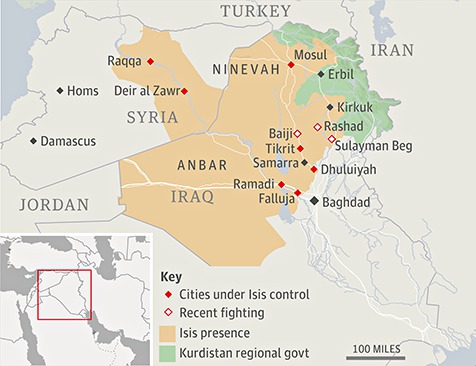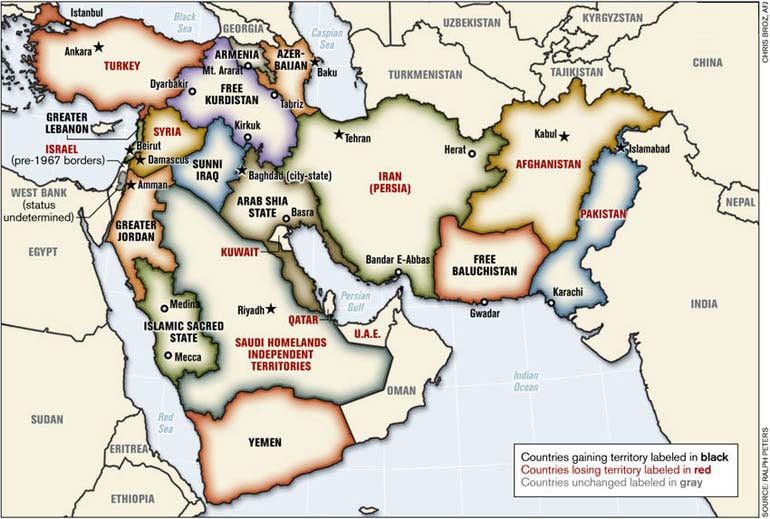This morning I woke to the fall of Mosul and I retire to the fall of Tikrit. What do the iTulip Field Marshals think about the rhyme of history with Phuoc Long and the start of the 75 spring offensive?
Is this the beginning of the end in Iraq? Are Frequent Wind style helicopters evacuations from the green zone in the near term future? Do we see a Linebacker II style response? Or is my geezer perspective so hopelessly out of date as to be irrelevant?
----------------------------------------------------------------
Islamist Insurgents Advance Toward Baghdad
Islamist Militants Overrun Tikrit, Birthplace of Former Dictator Saddam Hussein
Updated June 11, 2014 7:59 p.m. ET
Islamist militants overran the Iraqi city of Tikrit, just one day after fighters from the Islamic State of Iraq and al-Sham, or ISIS, took control of Mosul. ISIS's grip is expanding in the region. Via The Foreign Bureau, WSJ's global news update.
Islamist militants swept out of northern Iraq Wednesday to seize their second city in two days, threatening Baghdad and pushing the country's besieged government to signal it would allow U.S. airstrikes to beat back the advance.
An alarmed Iraqi government also asked the U.S. to accelerate delivery of pledged military support, particularly Apache helicopters, F-16 fighters and surveillance equipment, to help push back fighters from the Islamic State of Iraq and al-Sham, an al Qaeda offshoot known as ISIS. The U.S. said it has been expediting shipments of military hardware to the Iraqis all year.
http://online.wsj.com/articles/iraqi...507905194.html
Is this the beginning of the end in Iraq? Are Frequent Wind style helicopters evacuations from the green zone in the near term future? Do we see a Linebacker II style response? Or is my geezer perspective so hopelessly out of date as to be irrelevant?
----------------------------------------------------------------
Islamist Insurgents Advance Toward Baghdad
Islamist Militants Overrun Tikrit, Birthplace of Former Dictator Saddam Hussein
Updated June 11, 2014 7:59 p.m. ET
Islamist militants overran the Iraqi city of Tikrit, just one day after fighters from the Islamic State of Iraq and al-Sham, or ISIS, took control of Mosul. ISIS's grip is expanding in the region. Via The Foreign Bureau, WSJ's global news update.
Islamist militants swept out of northern Iraq Wednesday to seize their second city in two days, threatening Baghdad and pushing the country's besieged government to signal it would allow U.S. airstrikes to beat back the advance.
An alarmed Iraqi government also asked the U.S. to accelerate delivery of pledged military support, particularly Apache helicopters, F-16 fighters and surveillance equipment, to help push back fighters from the Islamic State of Iraq and al-Sham, an al Qaeda offshoot known as ISIS. The U.S. said it has been expediting shipments of military hardware to the Iraqis all year.
http://online.wsj.com/articles/iraqi...507905194.html





Comment